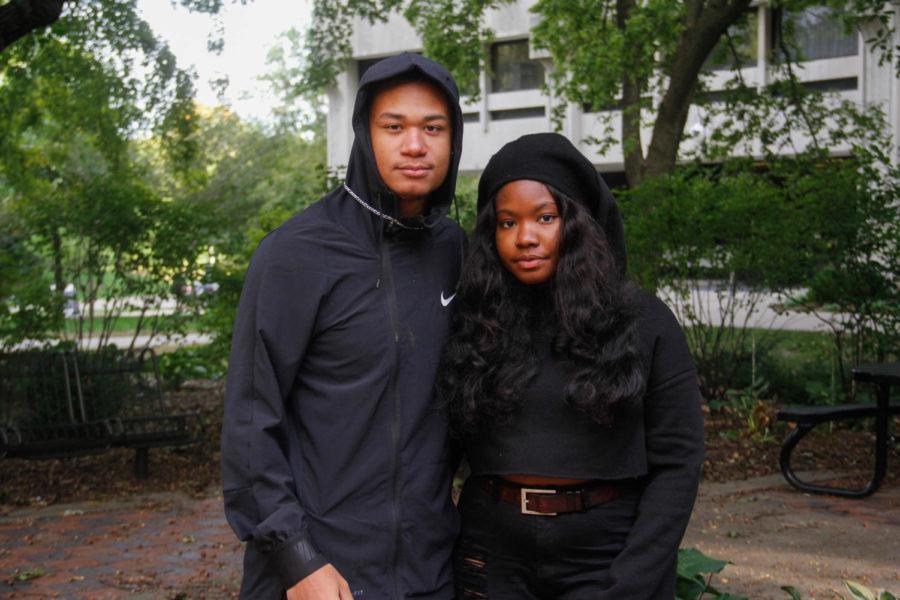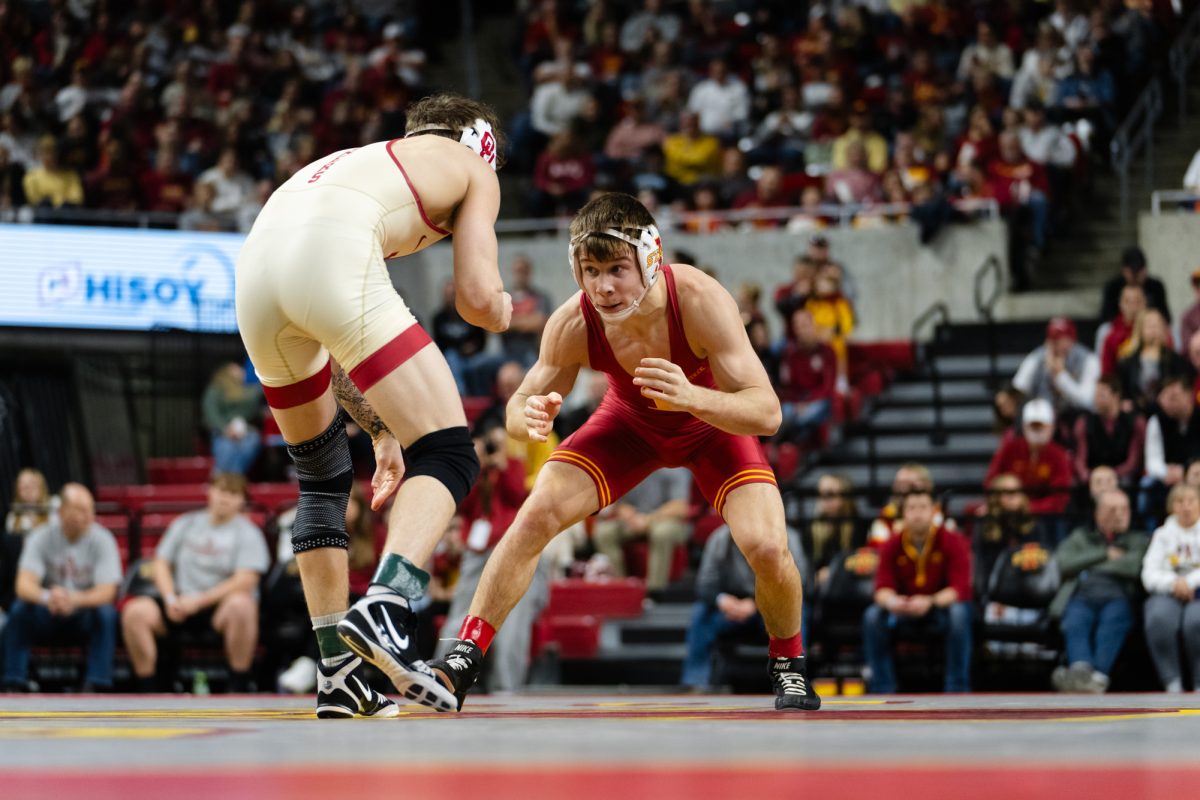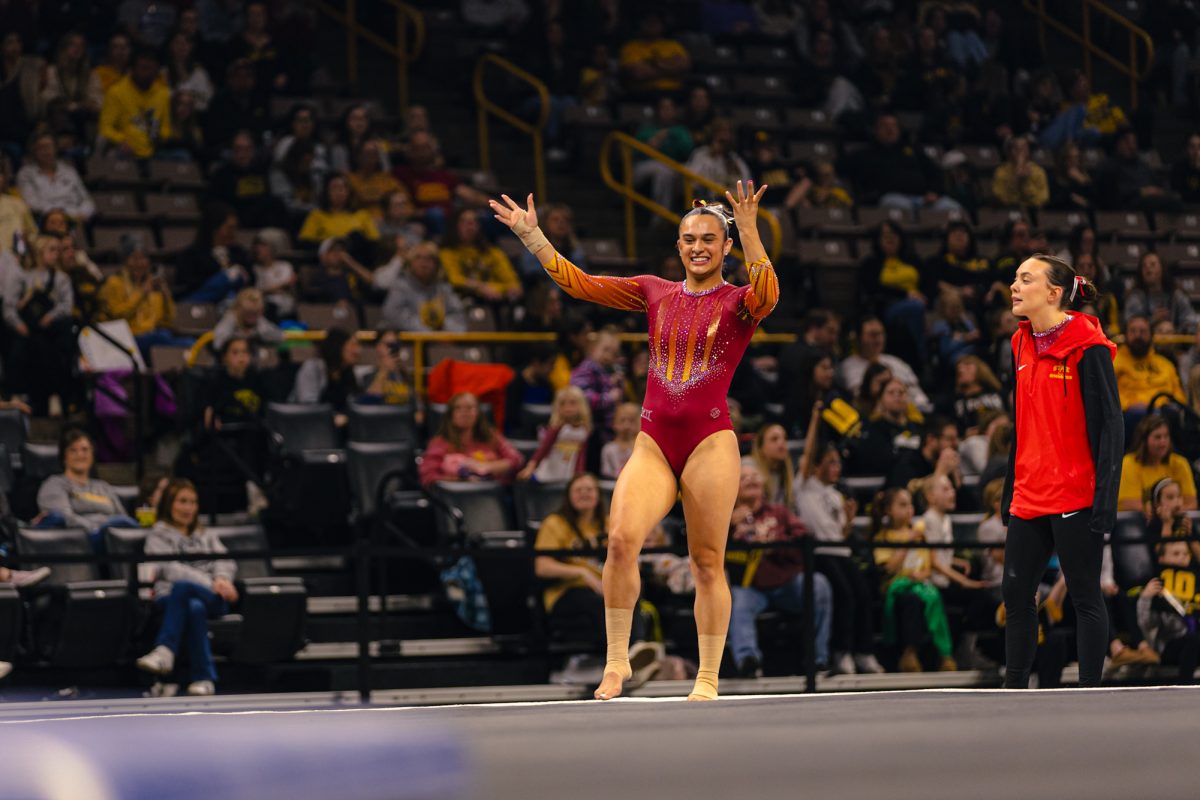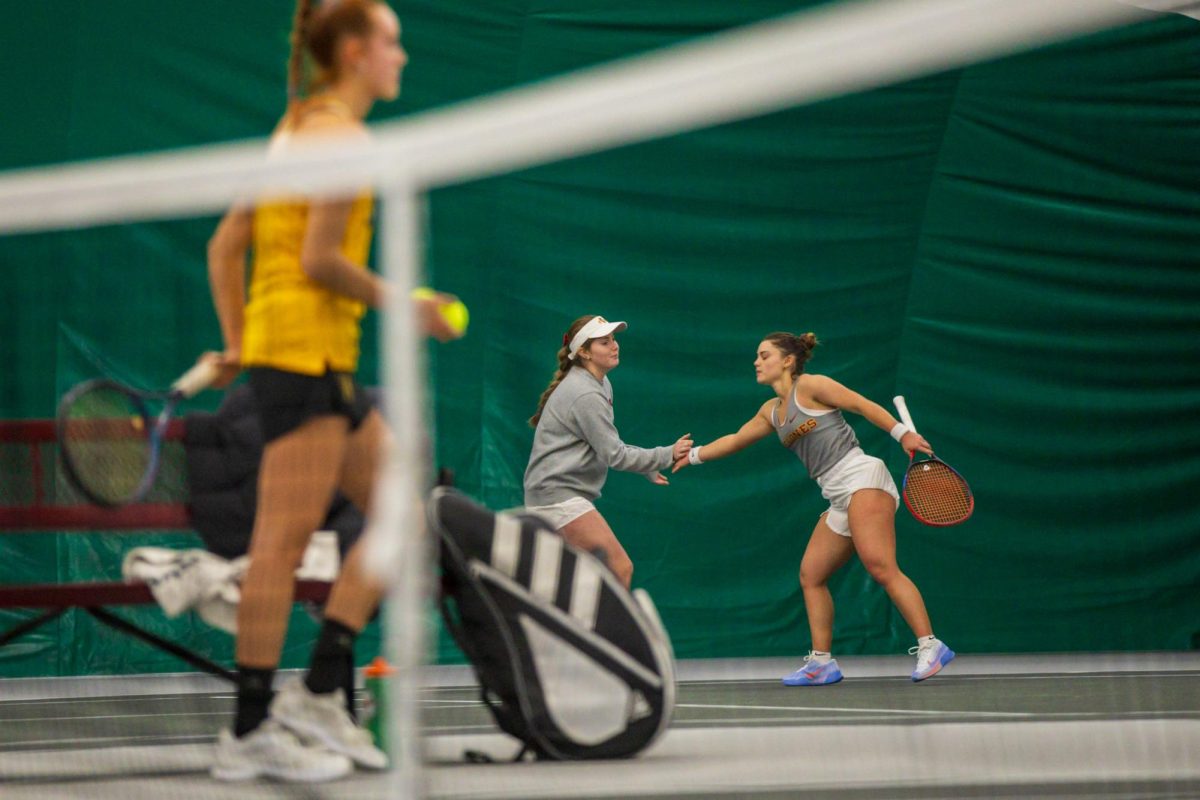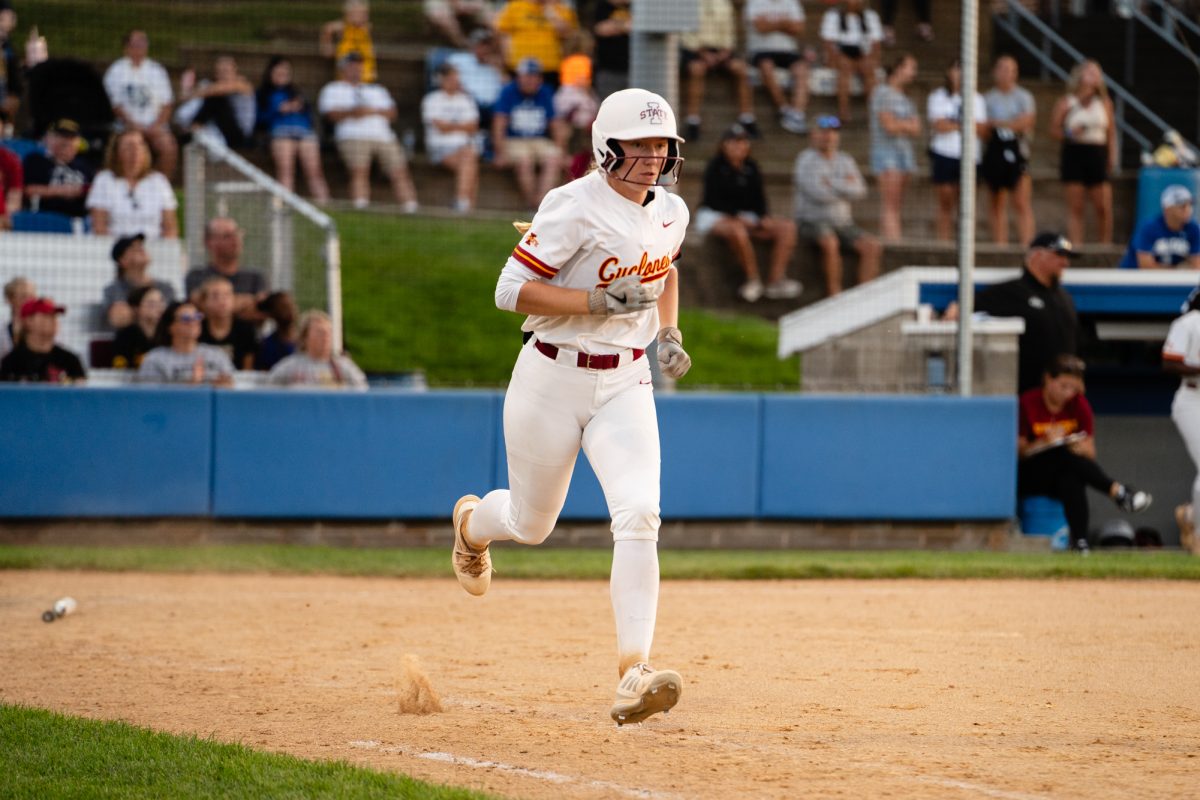Students to activists: The students behind the #PWIblackout
October 9, 2018
This is the first story in a series from “Voices” highlighting students who are dedicating their time here at Iowa State to activism and advocating for causes of their choosing.
Discussions flowed in room 2015 in Pearson Hall on the evening of Thursday, Sept. 27.
Black Student Alliance (BSA)’s second meeting of the year focused on a topic that engaged people from many different backgrounds: former NFL quarterback Colin Kaepernick and his protest within the NFL.
During a preseason game in 2016, video footage showed the San Francisco 49ers quarterback sitting down on a bench during the playing of the national anthem.
While Kaepernick’s sitting surprised many, his reasoning behind it meant something for many.
According to a New York Times article in 2016, Kaepernick said that he loved the United States and people, and that was why he was taking a knee along with his teammate, Eric Reid.
“I want to help make America better,” Kaepernick said. “I think having these conversations helps everybody have a better understanding of where everybody is coming from.”
Kaepernick told NFL media’s website the reason as to why he was not standing for the anthem in August of 2016 was because he was not going to stand up and show pride in a flag for a country that oppresses black people and people of color.
“To me, this is bigger than football and it would be selfish on my part to look the other way,” Kaepernick said.
In a postgame press conference in 2016, Kaepernick said that he believed that his stance had been reported out of context by the media.
And this same declaration Kaepernick made in 2016 was the same opinion many students shared during the BSA meeting echoed. However, opinions pertaining to social justice activism conducted recently encouraged thought provoking responses from students.
Kevin Wilson, sophomore in event management and head Big 12 delegate for BSA, instantly saw something lacking when talking amongst other students in his discussion groups.
Wilson said that he believed that the others in attendance had not provided action plans for what students could do at Iowa State.
Chelsea Nelson, junior in food science, agreed with Wilson. She said that students had a voice, but the voice was not put to use.
“We use [our voices] it to complain, but we are not coming together as an unit and try to make physical change,” Nelson said.
Nelson said that her daily conversations with friends addressed the feelings on how they are treated by others and wanting to combat change, but no action was taken out of it.
Nelson said that she had endured instances of negative interactions with non-black students.
She could remember watching a white student call another black student the n-word.
“[They] said it to my face and then in his face and did not care; it was like a joke,” Nelson said. “When you talk to people who feel the same, they don’t say anything. They do not want to cause disruption.”
Nelson said her group discussed how millennials were lacking the physical action to make change compared to previous generations.
“With us being in a society right now, as a time with internet and social media, I feel that there is so much we can do,” Nelson said. “With these conversations we are not getting any physical changes. We are just talking about how we feel.”
Nelson said that Wilson asked the discussion group on what action that they thought everyone should do to create change.
Nelson remembered the discussion group being silent.
“Everyone’s faces were blank,” Nelson said. “Yes, they were nodding, but no one had an answer.”
Following the discussion, Wilson was the one to pose the “what now” question.
Wilson suggested that students should come together in some type of way the following Thursday, Oct. 4.
Nelson said she was pleased because someone else had felt similar to her and wanted to do something.
“Yes we’re going to get backlash, we’re going to feel uncomfortable, it’s going to get hard, but if we’re talking about ancestors, they want us to face these challenges,” Nelson said. “That would be a big hoorah for our ancestors if we came together.”
The thought was a solidarity event and for participants to either wear all black or black Nike clothing in support of Kaepernick’s protest of oppression against people of color and police brutality.
Following the conclusion of the meeting, Nelson and Wilson knew that they needed to bring up their idea to the rest of the BSA executive board.
“I wanted them to back me up in everything,” Wilson said of the fellow executive members. “They were mostly pretty much on board with it.”
With BSA being apart of the Big 12 Black Student Government, the executive board saw their position as an opportunity to ascend their idea to a larger platform.
Nelson decided to not just reach out to the other universities in conference but instead use her friendships and connections at other universities.
Nelson said that she reached out to friends at Western Illinois University, Howard University, University of Wisconsin, University of Iowa, University of Illinois and University of Chicago.
Wilson said that he reached out to his friend at Upper Iowa University and encouraged their newly installed student organization for black students to participate.
“Not every day do people reach out to other universities to collaborate on things like this,” Nelson said.
With interest to participate from the other universities and the executive board having access to the social media accounts for the Big 12 Black Student Government, the hashtag #PWIBlackout was created with the intent of capturing the images of the students in solidarity for the cause.
Spending the week planning for the blackout, Nelson said that there was concerns stated from the beginning.
“What is wearing the all black attire, the all Nike attire going to do? So why should I do it?” Nelson said, referring to those who voiced their concerns.
Nelson said that questions of whether or not could non-black people participate and wear the attire arose.
“We were saying that we want to not only focus on our people but we want to open it up to people who have had to deal with police brutality and social injustices,” Nelson said. “We didn’t want to exclude them.”
For Wilson, he knew that people watching from the outside would not understand the why and the meaning behind what they had planned, but what did matter was unity among black students.
“My concern was that people would think we were doing it for publicity,” Wilson said. “All we are trying to do is stand up for what Kaepernick stood up for.”
Nelson said that the event itself is a good step and is a beginning step for move forward at Iowa State.
“We’ll see if the administration listens,” Nelson said. “I know that there will be slow changes on campus.”
For Nelson and Wilson this served as an opportunity to uplift their community.
“We want to be active in the black community, active in community service and active in academic excellence,” Wilson said.


